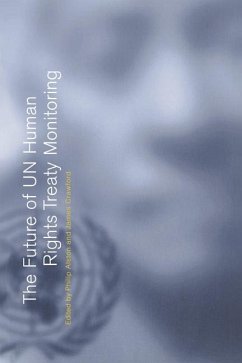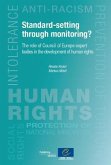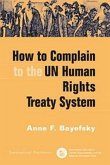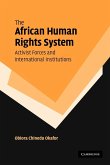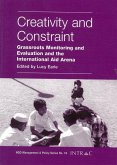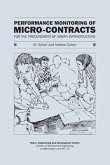Every state in the world has undertaken human rights obligations on the basis of UN treaties. Today's challenge is to enhance the effectiveness of procedures and institutions established to promote the accountability of governments. The six treaty bodies that monitor and evaluate state policies and practices play a vital role, but the whole system has been stretched almost to breaking point. It is under-funded, many governments fail to report or do so very late or superficially, there is a growing backlog of individual complaints, broad reservations have been lodged by many states, and the expertise of committee members has been questioned. This volume contains detailed analyses of the strengths and weaknesses of the system, written by leading participants in the work of the treaty bodies. Their recommendations provide a blueprint for far-reaching reform of a system of major importance for the future of international efforts to protect human rights.
Table of contents:
1. The UN human rights treaty system: a system in crisis? James Crawford and Philip Alston; Part I. The UN Human Rights Monitoring System in Action: 2. Individual chains in a world of massive violations: what role for the human rights committee? Henry Steiner; 3. Decision-taking in the committee on the elimination of racial discrimination Michael Banton; 4. The committee on the elimination of discrimination against women Mara R. Bustelo; 5. The reporting process under the convention on the rights of the child Gerrison Lansdown; 6. The committee on economic, social and cultural rights: catalyst for change in a system needing reform Scott Leckie; 7. Country-orientated procedures under the convention against torture: towards a new dynamism Roland Bank; 8. UN human rights reporting procedures: an NGO perspective Andrew Clapham; Part II. National Influences and Responses: 9. Making human rights treaty obligations a reality: working with new actors and partners Anne Gallagher; 10. Domestic implementation of international human rights treaties: Nordic and Baltic experiences Martin Scheinin; 11. The domestic impact of international human rights: the Japanese experience Yuji Iwasawa; 12. The role of human rights treaties in domestic law: the southern African experience John Dugard; 13. Uses and abuses of the treaty reporting procedure: Hong Kong between two systems Andrew Byrnes; 14. The United States and the international human rights treaty system: for export only? Stefanie Grant; Part III. Regional and Sectoral Comparisons: 15. Reporting in the inter-American system of human rights protection Antônio Cançado Trindade; 16. The reporting system of the European social charter David Harris; 17. The role of reporting in international environmental treaties: lessons for human rights supervision Daniel Bodansky; Part IV. Common Challenges for the Treaty Bodies: 18. The problem of overlapping among different treaty bodies Eric Tistounet; 19. Bodies of knowledge: a diversity promotion role for the UN High Commissioner for human rights? Craig Scott; 20. Treaty bodies in states of emergency: the case of Bosnia and Herzegovina Michael O'Flaherty; 21. Ensuring effective supervisory procedures: the need for resources Elizabeth Evatt; 22. Servicing and financing human rights supervision Markus Schmidt; Part V. Looking into the Future: 23. Beyond 'them' and 'us': putting treaty body reform into perspective Philip Alston.
Every state in the world has undertaken human rights obligations on the basis of UN treaties, but the system has been stretched almost to breaking point. This volume contains detailed analyses of the strengths and weaknesses of the system, by leading participants in the work of the treaty bodies.
Analyses in detail the strengths and weaknesses of the UN human rights treaty system.
Hinweis: Dieser Artikel kann nur an eine deutsche Lieferadresse ausgeliefert werden.
Table of contents:
1. The UN human rights treaty system: a system in crisis? James Crawford and Philip Alston; Part I. The UN Human Rights Monitoring System in Action: 2. Individual chains in a world of massive violations: what role for the human rights committee? Henry Steiner; 3. Decision-taking in the committee on the elimination of racial discrimination Michael Banton; 4. The committee on the elimination of discrimination against women Mara R. Bustelo; 5. The reporting process under the convention on the rights of the child Gerrison Lansdown; 6. The committee on economic, social and cultural rights: catalyst for change in a system needing reform Scott Leckie; 7. Country-orientated procedures under the convention against torture: towards a new dynamism Roland Bank; 8. UN human rights reporting procedures: an NGO perspective Andrew Clapham; Part II. National Influences and Responses: 9. Making human rights treaty obligations a reality: working with new actors and partners Anne Gallagher; 10. Domestic implementation of international human rights treaties: Nordic and Baltic experiences Martin Scheinin; 11. The domestic impact of international human rights: the Japanese experience Yuji Iwasawa; 12. The role of human rights treaties in domestic law: the southern African experience John Dugard; 13. Uses and abuses of the treaty reporting procedure: Hong Kong between two systems Andrew Byrnes; 14. The United States and the international human rights treaty system: for export only? Stefanie Grant; Part III. Regional and Sectoral Comparisons: 15. Reporting in the inter-American system of human rights protection Antônio Cançado Trindade; 16. The reporting system of the European social charter David Harris; 17. The role of reporting in international environmental treaties: lessons for human rights supervision Daniel Bodansky; Part IV. Common Challenges for the Treaty Bodies: 18. The problem of overlapping among different treaty bodies Eric Tistounet; 19. Bodies of knowledge: a diversity promotion role for the UN High Commissioner for human rights? Craig Scott; 20. Treaty bodies in states of emergency: the case of Bosnia and Herzegovina Michael O'Flaherty; 21. Ensuring effective supervisory procedures: the need for resources Elizabeth Evatt; 22. Servicing and financing human rights supervision Markus Schmidt; Part V. Looking into the Future: 23. Beyond 'them' and 'us': putting treaty body reform into perspective Philip Alston.
Every state in the world has undertaken human rights obligations on the basis of UN treaties, but the system has been stretched almost to breaking point. This volume contains detailed analyses of the strengths and weaknesses of the system, by leading participants in the work of the treaty bodies.
Analyses in detail the strengths and weaknesses of the UN human rights treaty system.
Hinweis: Dieser Artikel kann nur an eine deutsche Lieferadresse ausgeliefert werden.

